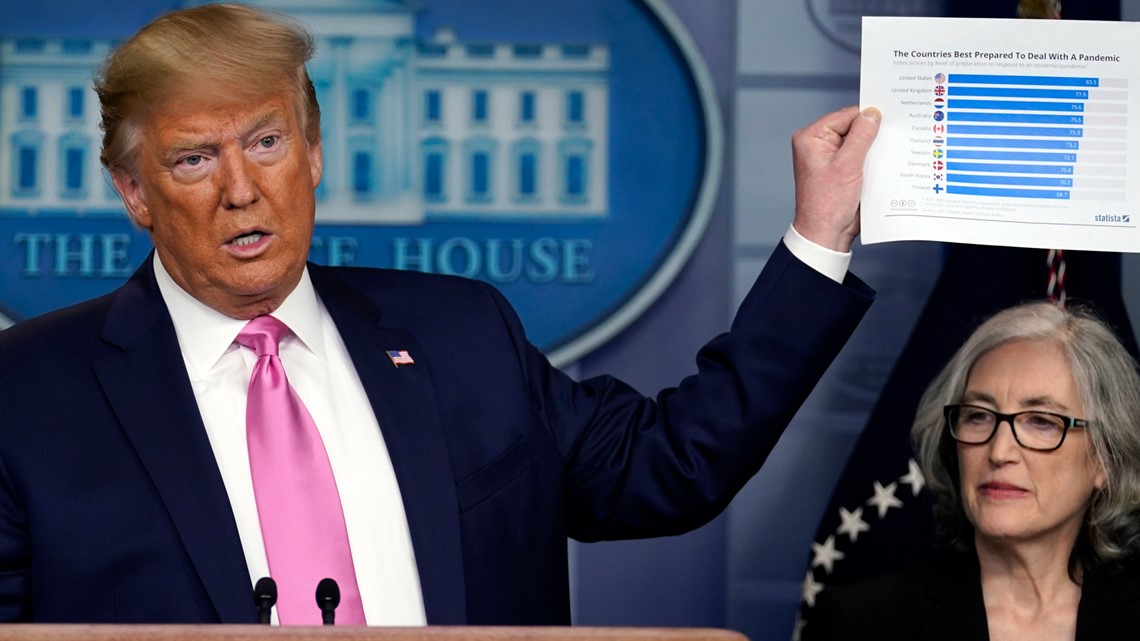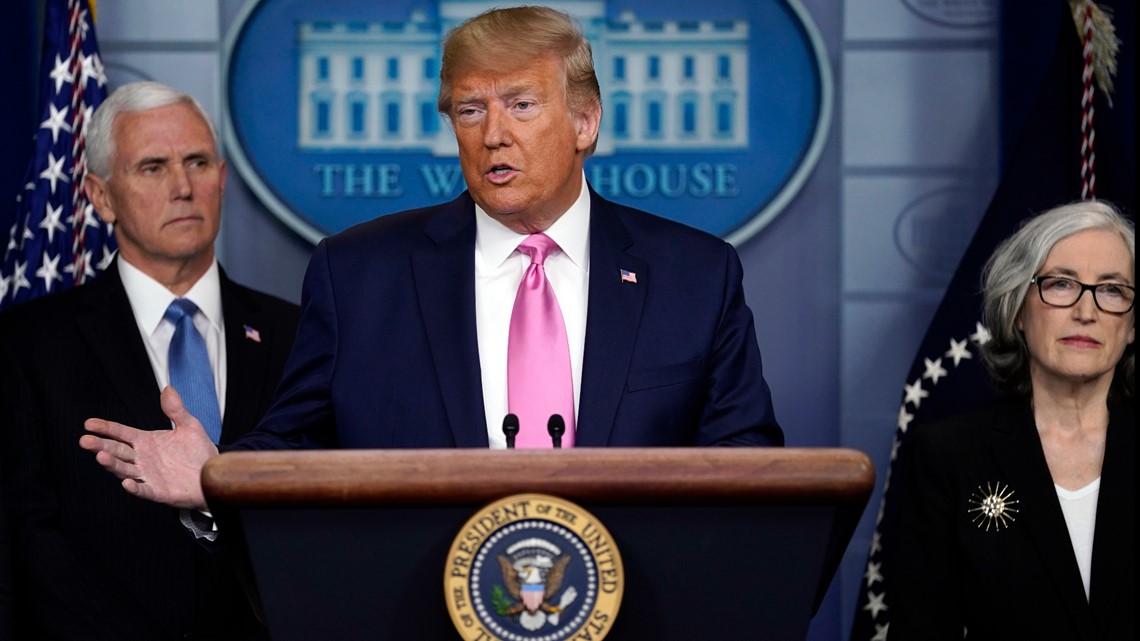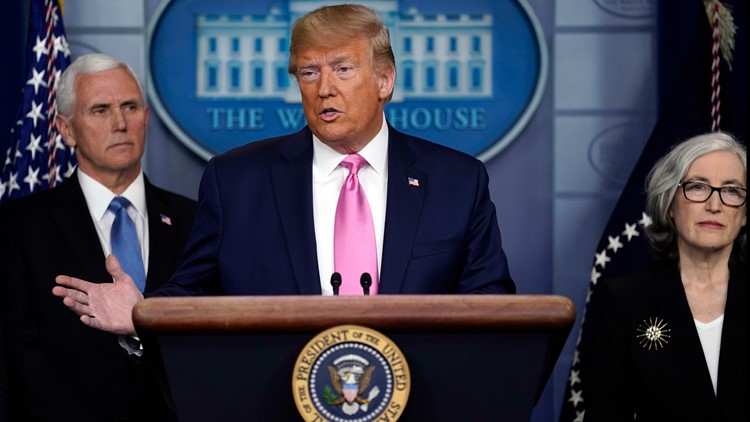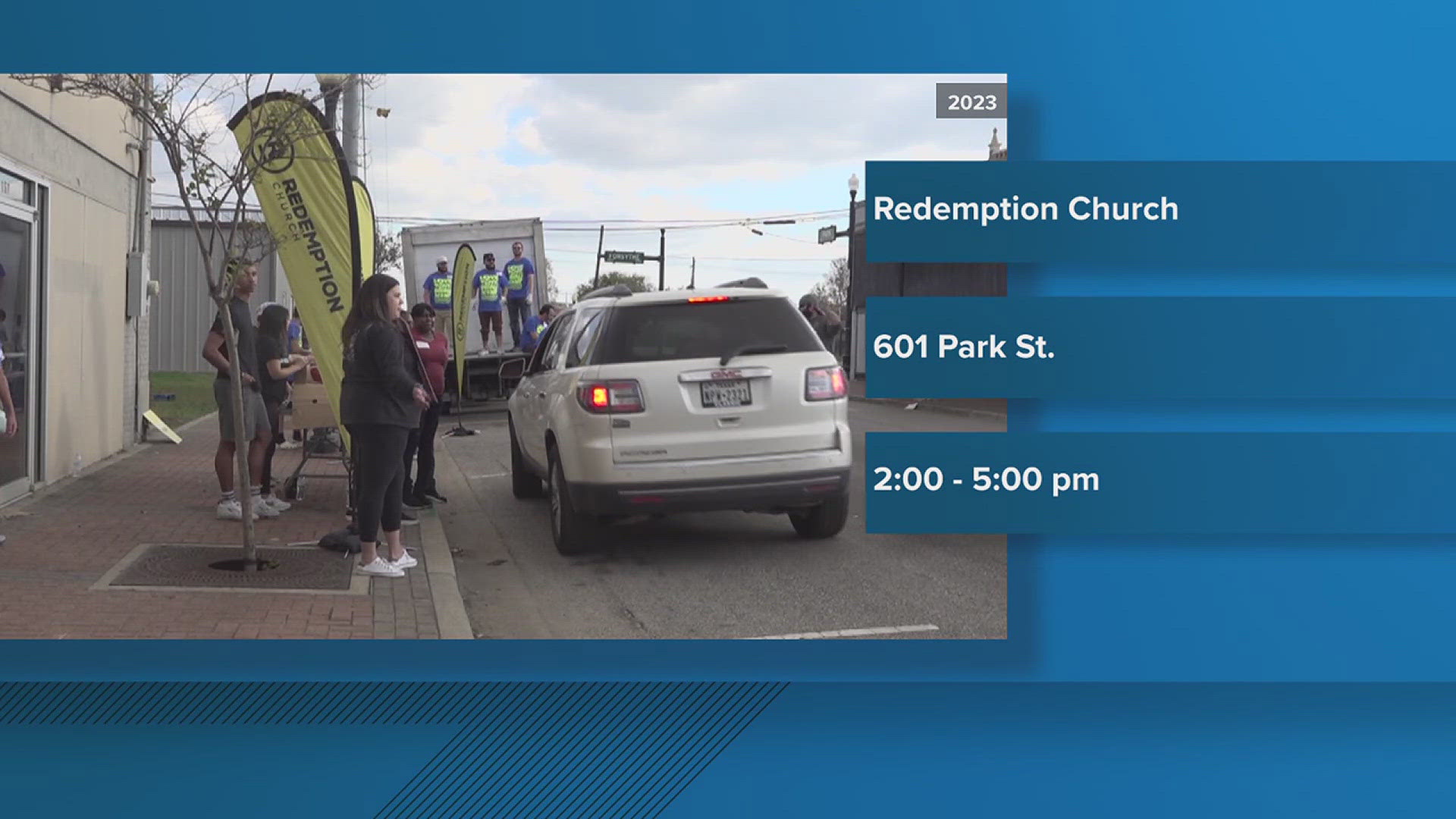WASHINGTON — President Donald Trump held a press conference Wednesday afternoon to give an update on the coronavirus threat in the United States.
During his remarks in the White House press briefing room, the president announced that he has appointed Vice President Mike Pence to lead the U.S. response to the coronavirus outbreak.
Our VERIFY researchers fact-checked what the president said.
Claim: "We closed up our borders to flights coming in from certain areas...We did it very early”
This claim is True.
On Jan. 31, President Trump’s administration announced the “suspension and limitation of entry” into the United States for immigrants or nonimmigrants who were “physically present within the People’s Republic of China, excluding the Special Administrative Regions of Hong Kong and Macau.”
The proclamation added that this rule would apply to anyone who had been in those areas in the last 14 days. It made exceptions for lawful U.S. residents and their family members.
- Jason Puckett
Claim: John Hopkins did a study of countries best and worst prepared for an epidemic and the United States is number 1.
This claim is true. In October 2019, the Johns Hopkins Center for Health Security and the Economist Intelligence Unit released the “Global Health Security Index.”
They examined countries around the world based on their preparation and ability to handle an epidemic or pandemic.
While the report found that, “no country is fully prepared to handle an epidemic or pandemic,” the United States did rank highest of all countries. The U.S. received a score of 83.5 out of 100. The next highest, the United Kingdom, scored 77.9.
President Trump held up a chart from Statista that illustrates these results. That chart can be found linked below.
Source: Global Health Security Index
- Jason Puckett


CLAIM: "The flu kills 25,000 to 69,000 Americans a year." Later on in the press conference, President Trump claimed that 69,000 Americans die from the flu each year.
While the broader range of flu deaths is in line with numbers from the Centers for Disease Control and Prevention in the last decade, to say 69,000 people die from the flu every year is an exaggeration. There have just been only two flu seasons in the last decade that the CDC estimates there were more than 50,000 flu deaths.
While exact data on flu infections and deaths aren't kept track of, the CDC estimates the flu burden for each season. All but two seasons from 2010 to 2019 had estimated deaths in the range President Trump initially gave. The two outliers were the 2011-2012 season, which had 12,000 deaths, and the 2015-2016 season, which had an estimated 23,000 deaths. The most deadly season during the past decade was the 2017-2018 season, when preliminary estimates believe there were 61,000 deaths.
Even the upper ranges of the estimates in most years don't hit 69,000. The one exception is the 2017-2018 year, which has a wider range because the estimates are preliminary. The range of estimates is between 46,000 and 95,000.
However, in every other year the range of estimates stretches above 60,000 just twice and the highest is 64,000.
Such a high number of fatalities are in part because of the large number of Americans who get the flu each year. For example, the CDC estimates that between 29 million and 41 million have gotten the flu in the 2019-2020 season.
So far, there's an estimated 16,000-41,000 deaths to the flu this season. That's a fatality rate of around 0.1%.
Sources: CDC past seasons data, CDC in-season estimates
- TJ Spry
CLAIM: While talking about closing the U.S. borders to travelers from certain regions of China, President Trump said: “We’d never done that before as a country.”
This claim is true, when specifically talking about illnesses.
While there have been embargoes and travel bans in the past, none of them were in response to sickness, illness or disease. There were discussions in the U.S. during the swine flu pandemic and when Ebola was spreading worldwide, but there were never official travel bans put into place.
Source: Congressional Research Service - “Overview of U.S. Domestic Response to the 2019 Novel Coronavirus (2019-nCoV)”, “Preventing the Introduction and Spread of Ebola in the United States: Frequently Asked Questions” - CRS
- Jason Puckett




